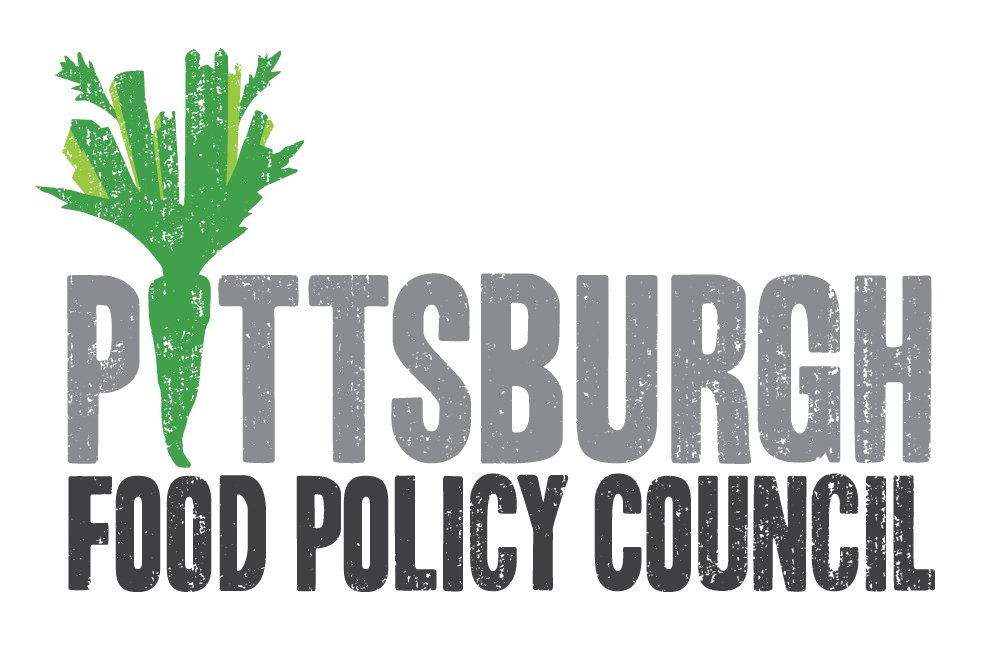Good Food Purchasing Policy
Pittsburgh Public Schools and the Pittsburgh Food Policy Council are working together to bring ‘good food’-- food that is healthy, environmentally sustainable, locally-sourced, and fair-- to students using the power of institutional procurement. Building on Pittsburgh Public Schools’ commitment to providing quality food to their students, the Good Food Purchasing Policy (GFPP) will ensure that PPS uses, and is held accountable to, a values-based framework for food purchases.
This policy establishes an institutional food purchasing program centered on five values: nutrition, environmental sustainability, regional economies, valued workforce, and animal welfare. Created by the Center for Good Food Purchasing, the five values provide standards for schools to track their progress on their commitment to buying ‘good food’. The Center for Good Food Purchasing helps schools and government bodies across the nation implement the purchasing program and track progress across the five ‘good food’ values.
PPS has previously demonstrated a commitment to healthy food for their students, based on their work to exceed the guidelines of the 2010 Healthy Hunger Free Kids Act. Building and adopting a Good Food Purchasing Program would allow PPS to continue this commitment. The Center for Good Food Purchasing has helped 43 institutions across the nation to lift up these values and incorporate them into their food policies and purchasing contracts. Collectively, these institutions annually invest:
- $56 million toward regional economies
- $32 million toward a valued workforce
- $20 million toward meat raised without routine antibiotics
- $10 million toward environmental sustainability
- $1.2 million toward animal welfare
PPS, as the second largest school district in Pennsylvania, is uniquely positioned to positively shape the regional food economy by purchasing in alignment with the five ‘good food’ values.
Here’s a breakdown of each of the five standards, as defined by the Center for Good Food Purchasing:
Nutrition: Promote health and well-being by offering generous portions of vegetables, fruit, whole grains, and minimally processed foods, while reducing salt, added sugars, saturated fats, and red meat consumption and eliminating artificial additives. Improving equity, affordability, accessibility, and consumption of high quality, culturally relevant Good Food in all communities is central to advancing Good Food purchasing practices.
Environmental sustainability: Source from producers that employ sustainable production systems to reduce or eliminate synthetic pesticides and fertilizers; avoid the use of hormones, routine antibiotics and genetic engineering; conserve and regenerate soil and water; protect and enhance wildlife habitats and biodiversity; and reduce on-farm energy and water consumption, food waste and greenhouse gas emissions. Reduce menu items that have high carbon and water footprints, using strategies such as plant-forward menus that feature smaller portions of animal proteins in a supporting role. Examples of certifications and claims include USDA Organic, Animal Welfare Approved, Antibiotic Resistance Action Center Certified Responsible, Demeter Certified Biodynamic, American Grassfed, Seafood Watch, the Marine Stewardship Council, Food Alliance Certified, and Protected Harvest Certified Sustainable.
Regional economies: Support diverse, family and cooperatively owned, small and mid-sized agricultural and food processing operations within the local area or region.
Valued workforce: Source from producers and vendors that provide safe and healthy working conditions and fair compensation for all food chain workers and producers from production to consumption. Examples of certifications and claims include Food Justice Certified, the Equitable Food Initiative, Fair For Life, the US Federation of Worker Cooperatives, and the United Farm Workers.
Animal welfare: Source from producers that provide healthy and humane conditions for farm animals. Examples of certifications and claims include USDA Organic, American Grassfed, Certified Humane, Animal Welfare Approved, the Global Animal Partnership, American Humane Certified, 100% Grass Fed, and Certified Grassfed by A Greener World.
Organizations that adopt the Good Food Purchasing Policy buy foods in alignment with these values for their students or employees. This means that Pittsburgh Public Schools would buy more from food producers that grow regionally, sustainability, and ethically, and will be able to continue making strides in prioritizing student health as a result of this policy.
Pittsburgh’s Good Food Purchasing Coalition is creating policy language for the PPS School Board to review in the hope of approval. This work is made possible by a CDC grant administered by the Allegheny County Health Department. Partners include Pittsburgh Public School District, the Pittsburgh Food Policy Council, the Center for Good Food Purchasing, Allegheny County Health Department (REACH), UPMC Children’s Hospital, Adagio Health, PPS Food Service Department, PPS Obama 6-8, Pasa Sustainable Agriculture, and Humane Action Pittsburgh. To learn more about the Center for Good Food Purchasing, check out their Facebook and Twitter pages.
